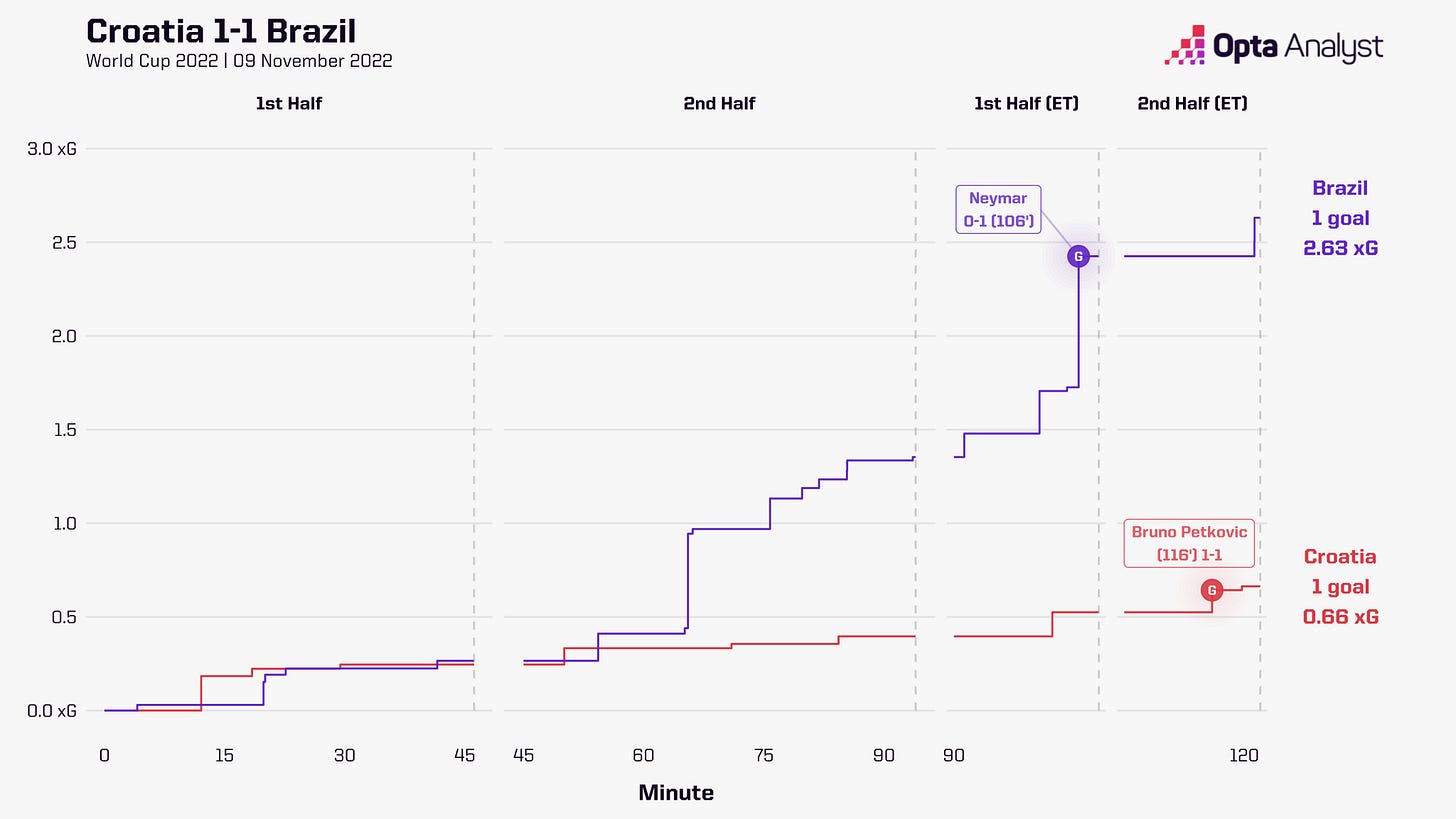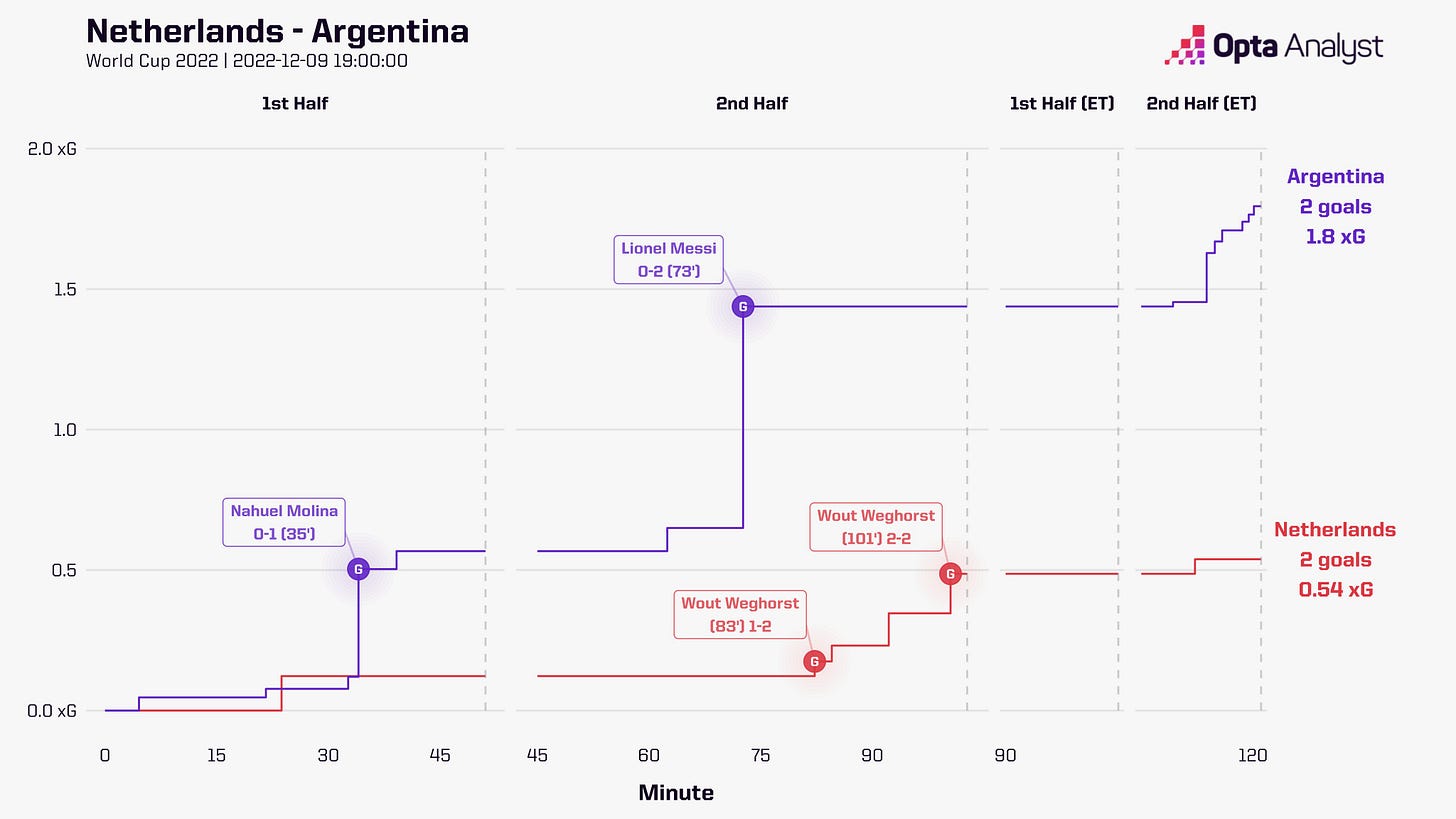The only place to start is the devastating news of Grant Wahl’s death. An American soccer journalist best known for his long stint at Sports Illustrated but more recently of his own newsletter and CBS Sports, Grant was covering Argentina against the Netherlands at the stadium in Qatar when he suddenly collapsed. People have speculated all sorts of things but, sitting here in England, I can’t confidently say anything about his cause of death.
What I can confidently say is that Grant was a brilliant journalist. When the United States held the World Cup in 1994, there were many sneering and parochial responses on this side of the Atlantic to the very idea. When the US will host the tournament again in four years’ time, everyone around the world will take it seriously. That’s in no small part to Grant’s journalism shining a light on how soccer has transformed in America.
Grant was an incredibly courageous reporter until his last day. Many people who went to Qatar this month insisted they did so to “shine a light on the issues”. I don’t know of anyone as genuinely committed to doing this as Grant. He spoke directly to migrant workers to uncover the truth of their experiences, poking around where he was absolutely not wanted by the Qatari government. He pushed and tested the tournament’s supposed tolerance of rainbow symbols. He admitted to feeling quite concerned that he was being watched by the government in Qatar, but that never for a second led to him compromising on his reporting. He embodied the best values of courageous journalism.
He was every bit as good a person as he was a journalist. Looking on Twitter today, it seems like everyone who knew him had a story for a time when Grant Wahl helped them out. I didn’t know him well, but he was always kind and helpful when I did speak to him. He was the best of us, and I will miss reading his work a great deal.
It seems almost trivial to transition into talking about football now, but that’s how it is. I just hope I can live up to Grant’s standards in my own work going forward.
Croatia 1-1 Brazil (Croatia win on penalties)
Neymar has equaled Pelé’s record for the most goals by a man in a Brazil shirt. At 30 years old, he will certainly become the all time leading scorer for the Seleção masculina. His contract at Paris Saint-Germain runs another two-and-a-half years, and he may well keep playing at the highest level for years beyond that. He’ll be 34 at the next World Cup, so there’s still a fair chance he’ll be there to compete for the trophy.
But in another sense, it’s over for him. The dream is dead. A player like Vinícius might well have overtaken Neymar as the team’s biggest star in four years. If Brazil win the 2026 World Cup, Neymar would likely be a supporting player rather than the protagonist. If Paris Saint-Germain win the Champions League, the world will be more likely to credit Lionel Messi or Kylian Mbappé than Neymar.
He will almost certainly retire without winning the Ballon d’Or. Neymar will not go down in the same terms as Ronaldinho, Ronaldo, Romário or Garrincha, let alone Pelé. And maybe that’s unfair. Neymar has been at the top of his game for at least eight years now. Someone like Ronaldinho only delivered for half that length of time. But history is written by the winners, and Neymar doesn’t have the silverware to write his version of events.
Did Brazil “underestimate” Croatia? I don’t really believe that any elite level coaching staff and analysis team can underestimate an opponent in 2022. But the vibe I got was that most in Brazil expected another dazzling performance comparable to the South Korea game. I wrote after that match that Brazil would probably need to bring in another midfielder to deal with the Croatia pass-and-grind machine. I voiced that view again on Twitter yesterday, but many in Brazil seemed sceptical. This system, in which Casemiro and Lucas Paquetá were the only genuine midfielders, was seen as enough to deal with Marcelo Brozović, Mateo Kovačić and Luka Modrić. This struck me as obviously wrong. Just check out which players were most involved from the passmaps below. (I wasn’t familiar with Twitter user DatoBHJ before, but they seem to put out cool stuff so check them out.)
Croatia did what they always do and dominated the midfield. You just can’t avoid those three working you in central areas. Brazil resorted to passing the ball along the back four and moving the ball up from the wide areas. This is exactly what Zlatko Dalić would have wanted.
But at the same time, Brazil created a ton of chances. For all that Croatia did things right, there’s no chance they go through unless Dominik Livaković has a brilliant game. I think Brazil could have done more to stifle Croatia’s approach, but should they? The chances were there to win the game.
You can squint and say they didn’t start to cook until after an hour, but Croatia are a good team. Dominating the xG by this much is a good performance! It just didn’t happen for them today. They got Croatia’d, but I don’t think there’s a clean narrative about stoic football beating flair here.
Netherlands 2-2 Argentina (Argentina win on penalties)
Argentina went through in the end and I think it was deserved. But a whole lot of stuff happened along the way.
After a cagey opening Argentina got ahead through the pass of the tournament, as Messi somehow found Nahuel Molina to score. It remained cagey for most of the game, as the Dutch didn’t really try to crank up the pressure and create lots of chances. Yet. The game was supposed to be dead when Denzel Dumfries brought down Marcos Acuña on the edge of the box. Messi hit the penalty perfectly. That should have been that.
Then Louis van Gaal did a Van Gaal move.
“We are playing ball possession play. If, after 70 minutes, we don’t succeed… then I change my playing style and then, of course, with the quality of [Marouane] Fellaini, we played more forward [long balls]. We scored because of that. So, I think it was a very good decision by the manager.”
That was Van Gaal eight years ago at Manchester United in his infamous “long balls” rant, and the approach was exactly the same here. After 78 minutes of a more structured approach, the Netherlands brought on Wout Weghorst, the 6’6 (1.97m) striker who wasn’t technical enough for Sean Dyche’s Burnley. Weghorst scores from a header and then an innovative free kick routine to turn the game on its head.
Argentina turned it on towards the end but the Dutch were really playing for penalties. I think this was a worse game than Brazil against Croatia, made entertaining by the tension and drama. Argentina just had more individual quality about them, and I don’t think there’s a great story of tactical intrigue about this one.
What is intriguing is whether they can avoid getting Croatia’d. Argentina will be more solid in midfield than Brazil (or anyone Croatia has faced so far). But Brazil also simply created a lot of chances in that game. My gut says it should be Argentina’s win, but who knows at this point.






Thanks for your expert coverage. As you know from a comment much earlier and prior to the tournament, I'm not watching any of the matches as a protest against FIFA corruption (probably a lost cause) and Qatar human rights violations. It was disappointing to see my team go out yesterday against Argentina but maybe predictable. One of the things that is contributing to this tournament is the very real lack of preparation as club seasons didn't stop until maybe 9-10 days before the first match day. This puts real pressure on managers particularly if they plan on playing a system that players are not used to. Most of the Dutch players come from teams that play 4-3-3 and some of them play up tempo high pressure football. This is markedly different from what van Gaal had them playing.
You don't mention it but from what I read on-line this was the worst refereed match of the tournament. Players and supporters deserve better (though I'm sure Argentina are happy with the result.).
I know you have said previously you see penalties as more towards a lottery, but I wonder if data can tell us anything about penalty order? I suspect there just aren’t enough shootouts to make for reliable data?
I get a little annoyed at the criticism of saving the ‘best’ penalty taker until last, because to me, it makes sense to save your best taker for the penalty most likely to be the highest pressure?
If you think a player is a little more likely to bottle their penalty, saving them for the 5th penalty surely only increases their chances of missing?
Maybe it’s something to overthink because these types of ‘everything’ penalties are so rare you can’t really do much planning.